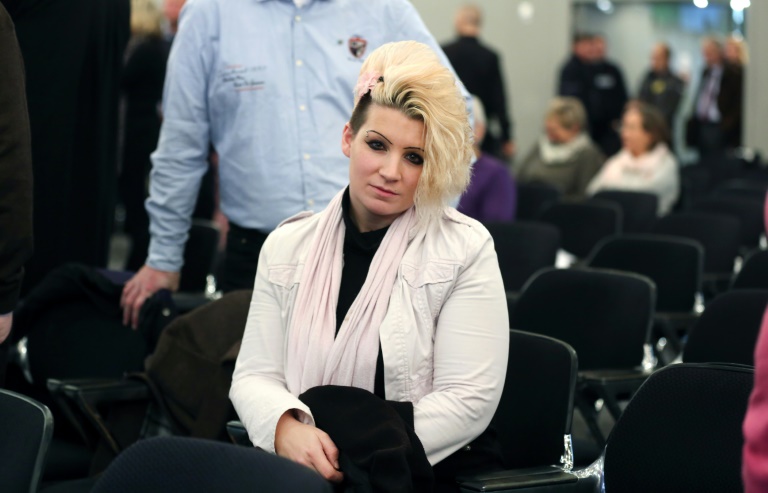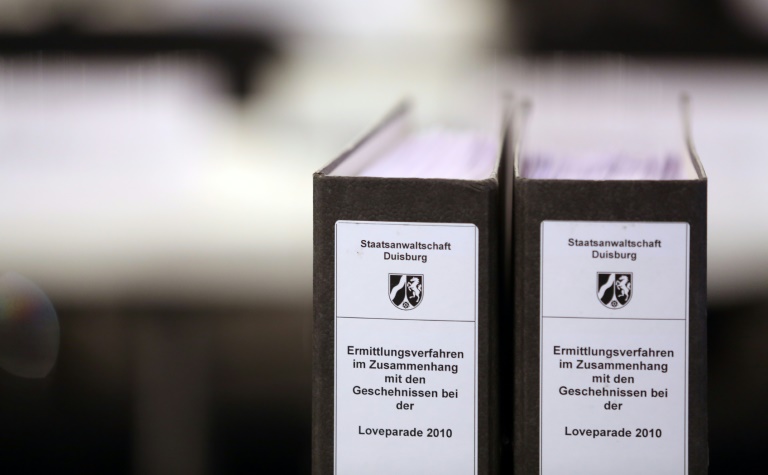Organisers of Germany's 2010 Love Parade went on trial on Friday for their alleged roles in the deaths of 21 young people during a catastrophic stampede at the popular street festival.

Four staff members from the event company Lopavent and six officials from Duisburg city, in western Germany, face charges of negligent manslaughter and bodily harm over the disaster.
Thirteen women and eight men were crushed, trampled to death or suffocated on July 24, 2010 when panic broke out in a narrow tunnel that served as the only entrance and exit to the techno music event.
More than 650 people were also injured in the stampede that saw victims squashed against fences and walls.
The long-awaited trial is one of the largest criminal cases Germany has ever seen, with the accused being represented by 32 lawyers while survivors and victims’ relatives, acting as co-plaintiffs, have enlisted nearly 40 lawyers.
The scale of the trial and the huge public interest forced court officials to move the proceedings to a convention hall in nearby Duesseldorf that can seat 500 people.
One of the stampede survivors, Rebecca Doll, said she hoped the legal proceedings would help those traumatised by the tragedy find closure.
“It never should have happened,” the young woman told NTV television at the court.
“I just want those responsible to face up to what they did… so that those people did not die in vain.”
– Ticking clock –
The trial almost never saw the light of day after a regional court in 2016 dismissed the charges against the 10 suspects, citing of a lack of evidence.

Survivor Rebecca Doll says she hopes victims will be able to find closure
The decision enraged victims’ families who have long blamed organisers for the event’s chaotic crowd management.
A Duesseldorf appeals court overturned the ruling this year, finally allowing the trial to go ahead.
Prosecutors intend to argue that organisers failed in their duty of care by only providing a single access path that was too narrow to handle the hundreds of thousands of revellers.
In their 556-page indictment, they accuse the suspects of “serious errors in planning and authorising” the festival and of lax safety measures.
If convicted, the accused face up to five years in prison.
It is unclear how long the trial will last but a verdict has to be reached by July 2020 to fall within the statute of limitations.
Love Parade founder DJ Dr. Motte said he wanted the trial to “shed full light” on how exactly the disaster could have happened but expressed frustration at the ticking clock.
“It puts huge pressure on things,” he told DPA news agency.

Criminal files were on display as the long-awaited trial began, one of the largest criminal cases Germany has ever seen
The 21 victims were aged between 17 and 38 and came from Germany, Australia, Italy, the Netherlands, China and Spain.
The Love Parade started as an underground event in the former West Berlin in 1989 before moving to other German cities, at times drawing over a million revellers.
The 2010 tragedy led organisers to declare that the Love Parade would never be held again “out of respect for the victims”.
Support Local Journalism
Add The Citizen as a Preferred Source on Google and follow us on Google News to see more of our trusted reporting in Google News and Top Stories.






